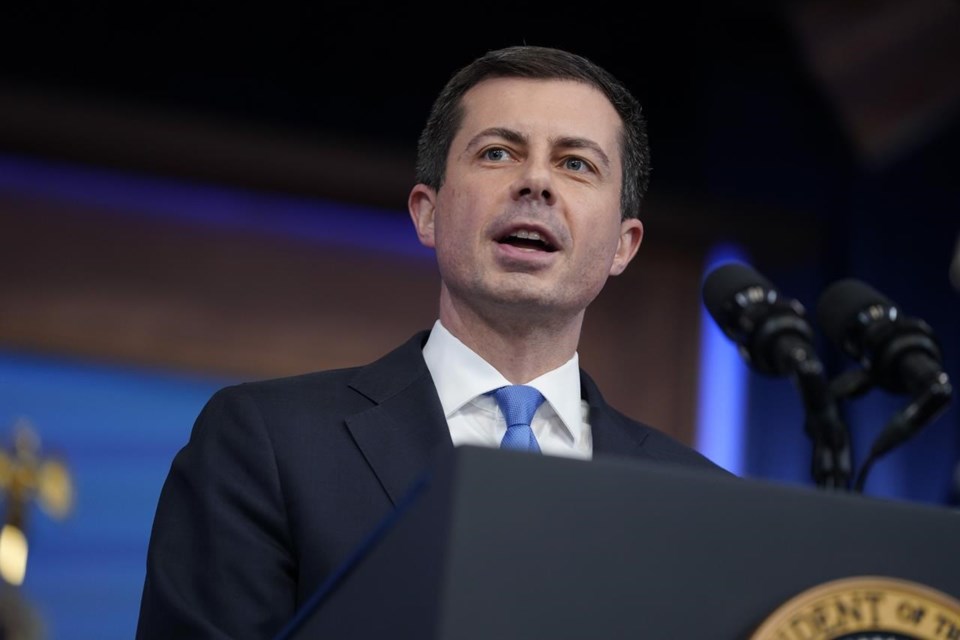WASHINGTON (AP) — The U.S. Department of Transportation is awarding almost $1.7 billion in grants for buying zero- and low-emission buses, with the money going to transit projects in 46 states and territories.
The grants will enable transit agencies and state and local governments to buy 1,700 U.S.-built buses, nearly half of which will have zero carbon emissions. Funding for the grants comes from the 2021 bipartisan infrastructure bill signed into law by President Joe Biden. The Democratic president has made it a priority to put more electric vehicles on the road — especially for schools and public transit — in an effort to contain the damage from climate change.
“Every day, millions of Americans climb aboard over 60,000 buses to get to work, to school, doctor’s appointments, everywhere they need to be,” Transportation Secretary Pete Buttigieg said in a call with reporters. “These are unprecedented levels of investment when it comes to putting modern cleaner buses on the road.”
Monday's announcement covers the second round of grants for buses and supporting infrastructure. All told, the U.S. has invested a total of $3.3 billion in the projects so far. Government officials expect to award roughly $5 billion more over the next three years.
The Biden administration said that the new buses will improve public health as diesel exhaust will no longer be going into the air and that the new buses will be easier to maintain.
The government received 475 project proposals for the grants that totaled roughly $8.7 billion, a sign of the demand for the funding.
The Seattle area will be getting $33.5 million to purchase 30 electric battery buses and chargers. The Washington, D.C., transit authority will use $104 million to make a bus garage an electric facility and buy roughly 100 electric battery buses. But money also is going outside of major U.S. cities, with Iowa City, Iowa, and the Seneca Nation in Western New York also receiving grants.
Josh Boak, The Associated Press



